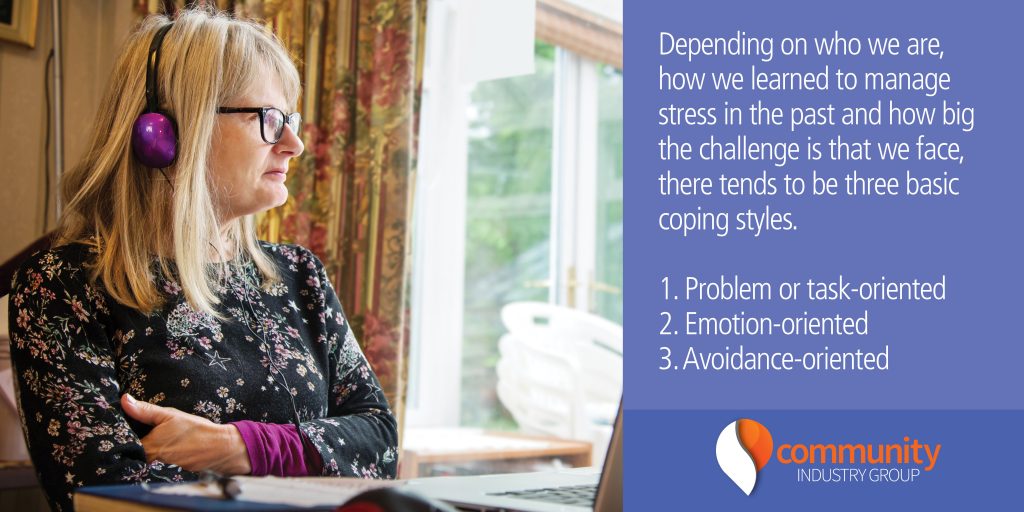Online Training
Coping styles

Coping Styles
Depending on who we are, how we learned to manage stress in the past and how big the challenge is that we face, there tends to be three basic coping styles.
Problem or task-oriented
You assess the challenge or issue and work out the best way to respond given your circumstances and resources. For this to occur, you must have a degree of capacity and control. This works for concrete tasks and tangible problems that require definite action to be resolved. An example is prioritising and managing your workload when situations are complex and demanding by working out what you can realistically achieve and what you can afford to suspend.
Emotion-oriented
Many of our life challenges also have a strong emotional aspect to them. This requires us to be able to manage our feelings and emotions so we can stay as balanced and positive as possible to deal with both the issue and the people around us. Self-care is essential for us to manage our emotions, and includes whatever strategies are helpful for keeping calm, focused and well. An example of this is ensuring you have prepared yourself for a difficult conversation by choosing to have it in a safe, quiet place at a time when you are not pressured by other demands.
Avoidance-oriented
This is when we put our head in the sand and hope the problem will just disappear. Whilst delaying certain tasks or responses can be wise and allow us to be in a better frame of mind when we do take action, continual avoidance only prolongs and in many instances enlarges the problem. We’re not only dealing with a bigger problem, but our non-helpful way of meeting it. For example, a staff member is not fulfilling their role adequately and as their manager, you need to have a conversation about this.
If you are would like to test your stress levels please click the button below to take a quiz (created by The Guardian).


